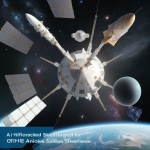The Hidden Cost of Dreams: A Guide to OFW Placement Fees in Metro Manila’s Healthcare Sector
Unlocking Your Dreams, Unlocking the Costs: A Guide to OFW Placement Fees in Metro Manila’s Healthcare Sector
The dream of a better life abroad draws thousands of Filipinos to seek overseas employment each year. For many, this journey begins with recruitment agencies, promising opportunities in various sectors. However, the path to international work can be fraught with financial pitfalls, particularly concerning placement fees. This guide aims to empower Overseas Filipino Workers (OFWs), specifically those seeking healthcare jobs in Metro Manila, with the knowledge to navigate the complex landscape of recruitment agency fees, understand their rights, and avoid exploitative practices.
Think of this as your essential survival kit before embarking on your overseas adventure. Understanding the true cost of pursuing opportunities through Metro Manila recruitment agencies is the first step in protecting yourself from potential exploitation. Many Overseas Filipino Workers are unaware of the legal limits on placement fees, set by the POEA, and the potential for illegal recruitment practices. This lack of awareness makes them vulnerable to agencies that inflate recruitment agency costs Philippines through hidden charges or misleading contracts.
Our guide will delve into the specifics of healthcare placement fees for OFWs, providing concrete examples of how these fees are structured and how they can be negotiated. We aim to equip you with the knowledge to differentiate between legitimate expenses and unlawful exactions. This guide also serves as a comprehensive resource, connecting you to vital government support programs for Overseas Filipino Workers. Beyond understanding OFW agency fees, it’s crucial to know where to turn for assistance if you encounter issues.
We’ll provide information on accessing legal aid, financial counseling, and repatriation assistance through the POEA and other government agencies. Furthermore, we will explore the role of the Bureau of Immigration in safeguarding OFW rights and preventing human trafficking, ensuring you are aware of all available resources to protect yourself throughout your overseas employment journey. Knowing your OFW rights and how to assert them is paramount to a safe and successful experience. Ultimately, this guide is designed to help you make informed decisions when choosing among Metro Manila recruitment agencies.
By understanding the legal framework surrounding placement fees, recognizing the signs of potential exploitation, and knowing where to seek support, you can minimize financial risks and maximize your chances of a positive overseas employment experience. We’ll provide a practical checklist to help you evaluate potential agencies, verify their POEA accreditation, and assess the transparency of their fee structures. This proactive approach will empower you to secure your dream job abroad without falling victim to unscrupulous practices.
Decoding the Fees: Legal Limits and Agency Practices
The Legal Landscape: What You Need to Know. Philippine law, primarily through the Philippine Overseas Employment Administration (POEA), sets strict limits on what recruitment agencies can charge. The POEA mandates that agencies can only collect placement fees equivalent to one month’s salary, and only after the Overseas Filipino Workers (OFW) has secured employment. This regulation is designed to protect aspiring OFWs from being burdened with exorbitant upfront recruitment agency costs Philippines. However, some Metro Manila recruitment agencies attempt to circumvent these rules through various means, such as charging for ‘training fees,’ ‘documentation fees,’ or other vaguely defined services.
It is crucial to understand that many of these additional fees may be illegal or unreasonable. The Bureau of Immigration (BI) also plays a crucial role in ensuring that departing OFWs have the proper documentation and are not victims of human trafficking or illegal recruitment. BI officers are trained to identify potential red flags and may conduct interviews to verify the legitimacy of an OFW’s travel and employment arrangements. Delving deeper into OFW agency fees, it’s vital for Overseas Filipino Workers to understand the specific regulations surrounding healthcare placement fees for OFWs.
The POEA, as the primary governing body, offers several avenues for OFWs to verify the legitimacy of fees being charged. Their website provides a comprehensive list of accredited agencies and their authorized fees, allowing OFWs to cross-reference what they are being asked to pay. Furthermore, the POEA offers free legal consultations to aspiring OFWs, providing them with expert advice on their rights and potential violations. Understanding these resources is the first step in protecting oneself from illegal recruitment and ensuring fair treatment throughout the recruitment process.
Beyond the POEA’s regulations, several government support programs exist to aid OFWs in managing their finances and navigating the complexities of overseas employment. The Overseas Workers Welfare Administration (OWWA) provides financial literacy training, helping OFWs understand budgeting, saving, and investment strategies. These programs are designed to empower OFWs to make informed decisions about their money and avoid falling prey to predatory lending practices or scams. Moreover, OWWA offers repatriation assistance and legal aid to OFWs who encounter problems abroad, providing a safety net for those facing difficult circumstances.
These services underscore the government’s commitment to protecting OFW rights and ensuring their well-being throughout their employment journey. When confronting potentially exploitative practices related to placement fees, OFWs should be aware of their rights and the avenues available for reporting illegal activities. If an agency demands excessive placement fees or engages in deceptive practices, OFWs can file a formal complaint with the POEA. The POEA has the authority to investigate these complaints and impose sanctions on agencies found to be in violation of the law. These sanctions can range from fines and suspension of accreditation to the permanent revocation of an agency’s license. Reporting illegal recruitment not only protects individual OFWs but also helps to curb unethical practices within the industry and ensures that Metro Manila recruitment agencies adhere to ethical standards.
The Fine Print: Unmasking Hidden Costs
Placement fees charged by recruitment agencies in Metro Manila for healthcare positions can vary significantly, creating a complex financial landscape for Overseas Filipino Workers (OFWs). Some Metro Manila recruitment agencies may initially advertise seemingly low placement fees, a tactic often used to attract a larger pool of applicants. However, this initial attraction can quickly turn into a financial burden as these agencies then impose hefty charges for ancillary services, effectively circumventing POEA regulations. Understanding the nuances of these fee structures is crucial for OFWs to protect their financial well-being and avoid exploitation.
This requires a keen eye for detail and a proactive approach to questioning every charge levied by the agency. A thorough understanding of OFW rights is paramount in navigating this often murky terrain. One common tactic involves inflating the cost of mandatory requirements. For instance, an OFW agency fees might advertise a low placement fee of PHP 20,000 but then require the OFW to pay PHP 50,000 for ‘medical examinations’ conducted by a specific, often overpriced, clinic, or PHP 30,000 for ‘training’ that is of questionable value and relevance to the actual job duties.
These ‘training’ programs may not provide any significant skills enhancement but serve primarily as a revenue stream for the agency or affiliated entities. It is important to remember that legitimate medical assessments are essential to ensure fitness for work, but the cost should be reasonable and transparent. OFWs should explore options for accredited clinics and compare prices before committing to a specific provider mandated by the agency. Other hidden recruitment agency costs Philippines may include documentation processing fees, visa application assistance fees (which, according to POEA guidelines, should be included in the placement fee), and even exorbitant transportation costs within Metro Manila.
These seemingly small charges can quickly accumulate, significantly increasing the overall financial burden on the OFW. Always demand a detailed breakdown of all fees and charges in writing before signing any agreement with a Metro Manila recruitment agencies. This detailed breakdown should clearly outline the purpose of each fee and how it contributes to the overall recruitment process. Be particularly wary of agencies that are hesitant to provide this information or that use vague or ambiguous language, as this could be a sign of potentially exploitative practices.
Knowledge of POEA regulations is crucial here; the POEA website offers resources to help OFWs understand legal fees and report suspected illegal recruitment activities. Real-world examples serve as stark reminders of the potential for exploitation. Maria, a registered nurse seeking healthcare placement fees for OFWs, was promised a job in Saudi Arabia with a placement fee of PHP 15,000. However, she ended up paying over PHP 80,000 due to mandatory ‘training’ and ‘processing’ fees. She later discovered that the training was unnecessary and that the processing fees were significantly inflated. Such cases highlight the importance of due diligence and the need for OFWs to be vigilant in protecting their financial interests. Furthermore, it underscores the importance of reporting suspected cases of illegal recruitment to the POEA and the Bureau of Immigration. By understanding the potential pitfalls and exercising caution, Overseas Filipino Workers can mitigate the risk of financial exploitation and ensure a smoother, more secure path to overseas employment.
Fight Back: Negotiation and Reporting
Negotiating Fees and Identifying Exploitative Practices. While the legal limit for placement fees is one month’s salary, OFWs can and should attempt to negotiate these fees. Research the average salary for the position you are applying for in the destination country and use this as leverage. Point out that excessive fees can make it difficult to repay debts incurred to finance the application process. If an agency insists on charging fees that seem unreasonable or illegal, consider seeking assistance from OFW advocacy groups or legal aid organizations.
Red flags to watch out for include agencies that: Demand upfront payments before securing employment; Refuse to provide a detailed breakdown of fees; Pressure you to sign documents without reading them carefully; Make false promises about salary or working conditions; Withhold your passport or other important documents. Reporting Violations: Your Rights and How to Exercise Them. If you believe you have been a victim of illegal recruitment or exploitative practices, report the agency to the POEA immediately.
You can file a complaint in person at the POEA office or through their online portal. Provide as much documentation as possible, including contracts, receipts, and any communication with the agency. The POEA has the authority to investigate agencies, impose fines, and even revoke their licenses. Remember, you are not alone, and there are resources available to help you protect your rights. Beyond direct negotiation, understanding the landscape of allowable charges is crucial for Overseas Filipino Workers.
Familiarize yourself with the POEA’s guidelines on what constitutes legitimate recruitment agency costs Philippines. For example, agencies are generally permitted to charge for documentation processing, medical examinations (though OFWs have the right to choose their own accredited clinics), and training programs, but these fees must be reasonable and transparent. Always request an official receipt for every payment made to the agency, detailing the specific services covered. Scrutinize contracts for clauses that seem ambiguous or that impose additional financial burdens not initially disclosed.
Remember, a reputable Metro Manila recruitment agency will be upfront about all costs involved and willing to answer your questions thoroughly. Furthermore, proactively protect yourself from illegal recruitment by verifying the POEA accreditation of any agency you consider. The POEA website provides a searchable database of licensed agencies, allowing you to confirm their legitimacy and check for any records of violations. Be wary of agencies that operate solely through social media or informal channels, as these are often associated with illegal recruitment activities.
Never surrender your passport or other essential documents to an agency unless it is explicitly required for processing your application, and always obtain a receipt. If you are asked to pay fees upfront before a job offer is secured, this is a major red flag and should be reported to the authorities immediately. Remember, protecting your OFW rights starts with vigilance and informed decision-making. Government support programs for overseas workers also play a vital role in safeguarding OFWs from exploitation related to OFW agency fees.
Agencies like the Overseas Workers Welfare Administration (OWWA) offer legal assistance and counseling services to OFWs who have been victims of illegal recruitment or unfair labor practices. The Bureau of Immigration also works to prevent human trafficking and illegal recruitment at ports of entry and exit. Familiarize yourself with these resources and don’t hesitate to seek their help if you encounter any suspicious or exploitative behavior during the recruitment process. By understanding your rights and utilizing available support systems, you can navigate the complexities of healthcare placement fees for OFWs with greater confidence and security.
Empower Yourself: A Checklist for Choosing a Reputable Agency
Choosing the Right Agency: A Checklist for OFWs. Selecting a reputable recruitment agency is crucial to a successful and safe overseas employment experience. Use this checklist to guide your decision: Verify POEA Accreditation: Ensure the agency is licensed and accredited by the POEA. Check their accreditation status on the POEA website. Research the Agency’s Reputation: Look for online reviews and testimonials from other OFWs. Contact OFW advocacy groups for recommendations. Ask for a Detailed Fee Breakdown: Get a written breakdown of all fees and charges before signing any agreement.
Understand Your Contract: Read the employment contract carefully and ensure that all terms and conditions are clear and acceptable. Seek Legal Advice: If you have any doubts or concerns, consult with a lawyer or legal aid organization specializing in OFW rights. Trust Your Instincts: If something feels wrong or too good to be true, it probably is. Don’t be afraid to walk away from an agency that makes you uncomfortable. By being informed, proactive, and assertive, Overseas Filipino Workers can navigate the recruitment process with confidence and secure overseas employment opportunities that are both rewarding and financially sustainable.
The Bureau of Immigration also recommends that OFWs keep a copy of their employment contract and other important documents with a trusted family member in the Philippines, in case of emergencies or disputes. Beyond the basics, delve deeper into the agency’s history. How long have they been placing healthcare workers specifically? A longer track record, especially with consistent positive feedback, often indicates a more stable and ethical operation. Inquire about their success rate in placing OFWs in your desired country and role.
Don’t hesitate to ask for contact information of past recruits (with their permission, of course) to get firsthand accounts of their experiences. This proactive approach can help you avoid Metro Manila recruitment agencies that engage in illegal recruitment or inflate healthcare placement fees for OFWs. Remember, thorough due diligence is your best defense against exploitation. Navigating the complex landscape of OFW agency fees requires financial savvy. Before committing to any agency, create a detailed budget that accounts for all potential recruitment agency costs Philippines, including placement fees, documentation expenses, medical examinations, and travel costs.
Compare fee structures across multiple agencies, paying close attention to what is included in each package. Be wary of agencies that demand upfront payments beyond the legally permissible amounts outlined by the POEA. If an agency pressures you to take out a loan to cover excessive fees, consider this a major red flag. Understanding your financial obligations and rights will empower you to make informed decisions and protect your hard-earned money. If you believe you are being overcharged or subjected to unfair practices, report the agency to the POEA immediately.
Finally, be aware of the government support programs available to Overseas Filipino Workers. The Overseas Workers Welfare Administration (OWWA) offers various services, including legal assistance, skills training, and reintegration programs. Familiarize yourself with your OFW rights and the resources available to you. If you encounter problems during your overseas employment, don’t hesitate to seek help from the Philippine Overseas Labor Office (POLO) in your host country. They can provide assistance with labor disputes, contract violations, and other issues. Remember, you are not alone. By leveraging these government resources and staying informed about your rights, you can ensure a safer and more successful overseas employment experience, free from the burden of excessive placement fees.


